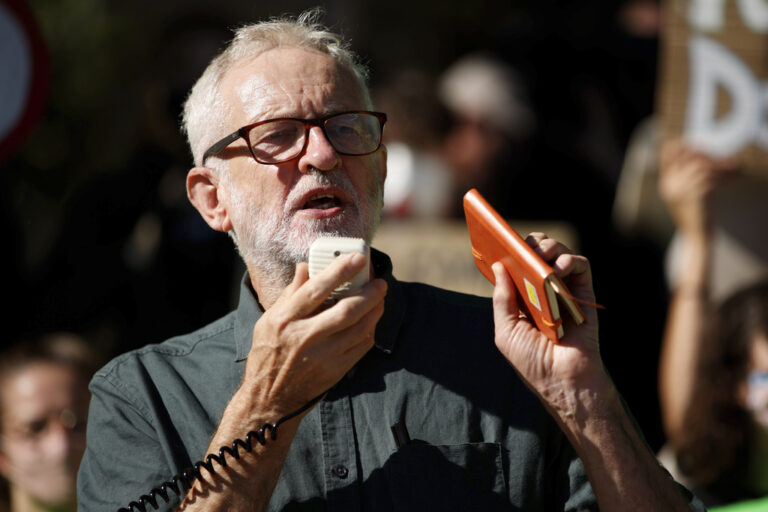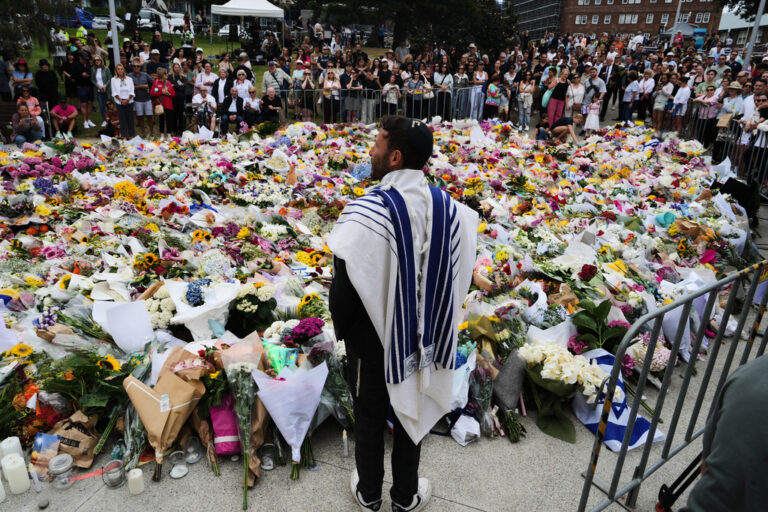 “Zion arose as a resurrection of the dead at the concentration camps,” said French Christian writer Francois Mauriac after the War. This view became rooted in Europe through the Church — which could offer no other explanation for the return of the Jewish people to Eretz Yisroel, a historical development that lies in conflict with Christian thought — and through the Arabs and Jew haters.
“Zion arose as a resurrection of the dead at the concentration camps,” said French Christian writer Francois Mauriac after the War. This view became rooted in Europe through the Church — which could offer no other explanation for the return of the Jewish people to Eretz Yisroel, a historical development that lies in conflict with Christian thought — and through the Arabs and Jew haters.
In his new book, Zionism and the Destruction of the Jews, French historian George Ben Shushan has refuted this widespread claim, now being propagated by Iran. He argues that the only connection between the Holocaust and the State of Israel is demographic, as a result of the wave of immigration by survivors. “In 1948 Israel did not appear as a European compensation to the Jews as Holocaust victims or as a Jewish reaction to the murderous Nazi antisemitism in Europe,” he writes. The West felt no culpability for the Holocaust. France, which aided Israel in 1947, acted on its own interests of restricting British control in the Middle East.
Ben Shushan also recalls Zionist leaders’ deprecating attitude towards Holocaust victims both during and after the war. Only in 1942 did the Zionist leadership officially recognize that the Nazis were carrying out genocide rather than killing Jews intermittently, as they had claimed previously. “Why didn’t you revolt?” the General Prosecutor asked one witness at the Eichmann Trial in Jerusalem in 1961.
Ben Shushan demonstrates that the survivors were received coolly in Israel. “Among the concentration camp survivors few would have survived had they not been wicked, ruthless and egotistical,” said Ben Gurion in 1949.
“The denigrating attitude toward survivors placed them in an impossible position: whoever died was to blame for his death and whoever lived was suspect,” writes Ben Shushan.
But because of Arab propaganda, more and more Europeans associate the Holocaust with Israel, turning the Palestinians into indirect Holocaust victims. Ben Shushan reminds readers that the Zionist leadership accused European Jewry of passivity, saying they went “like sheep to the slaughter,” which led pioneer settlers to develop a sense of disgust toward the victims.
In fact the memory of the Holocaust has only been encouraged in Israel in recent years. At first Israelis were embarrassed by the Holocaust. Only after the Six-Day War, when fear seized the Jewish world, did they latch onto the Holocaust.
According to Ben Shushan, through their distortions new Israeli historians fostered the view that Israel rose up from the ashes of the Holocaust in order to point out the injustice supposedly done to the Palestinians and to stir guilt pangs in Europe. The result: today Europe provides the Palestinians 800 million euro per year as pseudo-reparations payments.
(By Arnon Yaffeh, Paris for Dei’ah veDibur)











2 Responses
What else is new?
There is an argument to be made that east-west politics played a large role in Israel’s recognition by the world community. Remember, it was the beginning of the post-colonial world, and both the Soviet Union and the Western nations were scurrying for position. The US and USSR were among the first to recognize Israel. It could be argued that the Soviet Union hoped that Israel’s founders would set up a pro-Soviet socialist government. The Truman administration, on the other hand, recognized Israel because it saw Israel’s existence as inevitable and wanted to be in position to keep it out of the Soviet block. The former colonial nations were also trying to protect their influence in the region — witness the causes of the 1956 Sinai war. I believe that post-Holocaust guilt played some role in Israel’s establishment, but I think it was much more complex than that.